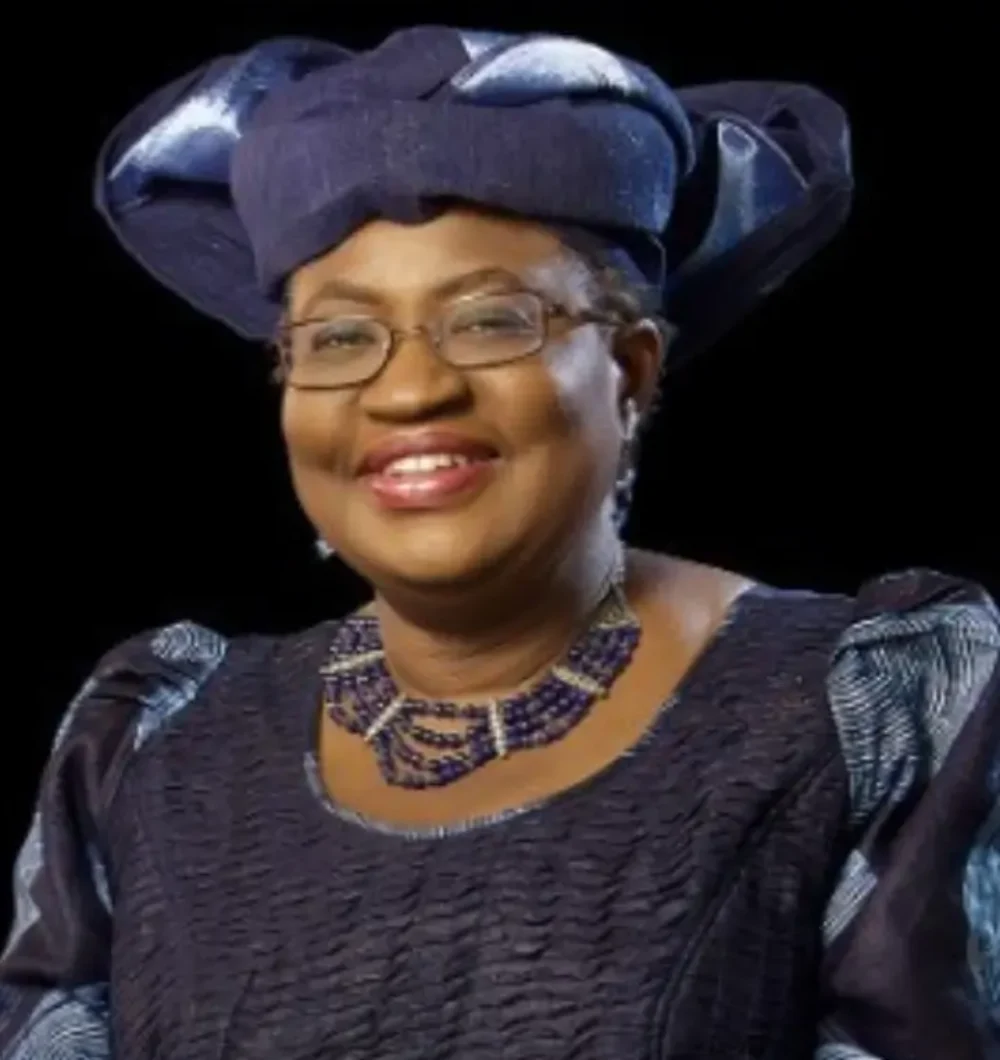
Ngozi Okonjo-Iweala
Full Name:
Ngozi Okonjo-IwealaBirthplace:
Ogwashi-Ukwu, NigeriaLiving:
Nigeria & USAEducation:
Ph.D. in Economics – MIT; BA – HarvardEarly Job:
Economist at World BankKey Roles:
Finance Minister of Nigeria, Managing Director at World BankCurrent Role:
Director-General, World Trade Organization (WTO) – since 2021Known For:
Global trade expert, first woman & African to lead WTOAwards:
Global trade expert, first woman & African to lead WTODetailed Information:
It’s always hard to speak at the end of a conference — everything has already been said. But what I’d like to do is remind us of the key ideas shared here and suggest a few thoughts we can take forward.
We came here to talk about “Africa: the Next Chapter.” And we’re doing that because we recognize that the old chapter hasn’t served us well. Too often, the images of Africa are those of drought, disease, and death. But the chapter we want to write next is about a vibrant, healthy, and confident Africa — full of smiling faces and opportunity.
What’s different now is that, for the first time in decades, we actually have a real platform to build on. The continent’s economies are growing. Where we used to struggle at 2% growth, we’re now hitting 5%, with projections for even higher. Inflation is down. External debt has dropped dramatically. I was personally involved in resolving one of Africa’s biggest debts — seeing it go from $50 billion down to around $12 or $13 billion.
We’re building reserves, stabilizing our currencies, and finally, we’re attracting private investment. Inflows have grown significantly, and remittances are increasing too — showing confidence in our economies. When people in the diaspora are bringing money back, that tells the world we believe in ourselves again.
But this progress brings responsibility. 62% of our population is under the age of 24. That’s both a challenge and an opportunity. We need to create jobs, provide education, ensure health, and keep our youth productively engaged. I’ve even started an opinion research firm in Nigeria because too often our people’s voices are not heard. And what are they saying? Jobs. That’s the number one concern.
Now, I want to address a debate I’ve heard too often — this tired aid vs. trade, aid vs. private sector debate. That’s not the right conversation. What we need is partnership — one that brings together governments, donors, the private sector, and, most importantly, ordinary African people taking charge of their lives.
I don’t believe we should be ashamed of aid. Mo Ibrahim once said he dreams of the day Africa gives aid. I reminded him — we already have! Europe and America were built with Africa’s aid — our resources, our labor. So when something is being given back, we shouldn’t be defensive. What matters is: how are we using it?
Let me tell you a story. During the Nigeria-Biafra war, I was a teenager. We were down to one meal a day. My younger sister had a severe fever — likely malaria — and my mother was too sick to help. I carried my sister on my back and walked 10 kilometers to reach a doctor. The crowd was enormous, but I found a way in. That doctor — with a shot of chloroquine and some rehydration — saved her life. Today, my sister is a physician saving others.
Why do I share this? Because when it’s your loved one, you don’t care if the help comes from aid, trade, or anything else. You just want them to live.
But beyond emotion, let’s talk economics. Every life saved is a productive agent in the economy — a farmer, teacher, mother. Saving lives is not just humane — it’s strategic. If we let people die of HIV/AIDS, malaria, or preventable illnesses, we lose our workforce. And if children lose their parents, they become economic burdens.
So, yes, use aid — but use it well. Look at Europe. Spain received billions from the EU, and they used it to build roads, infrastructure, and become a service economy. Ireland used aid to create an information superhighway and is now thriving. Why can’t we do the same?
But here’s my concern. Today, aid isn’t just coming from traditional institutions like the World Bank or IMF. It’s also coming from private foundations — wealthy individuals who mean well. But often, they come without enough knowledge of the continent. They act alone, without partnering with Africans who understand the context.
We need to change this. We need to call them in — the Gates Foundation, Soros, and others — and say: “Here’s what Africa needs. Here’s how you can help us best.” Right now, aid is fragmented. Everyone does their own thing. And if we don’t coordinate, ten years from now we’ll still be talking about the same problems.
It’s time we took charge of the goodwill coming our way. Combine it — government, donors, private foundations, the African private sector — all working toward the same goal. We can do it. But we have to act now, with unity, vision, and leadership.
